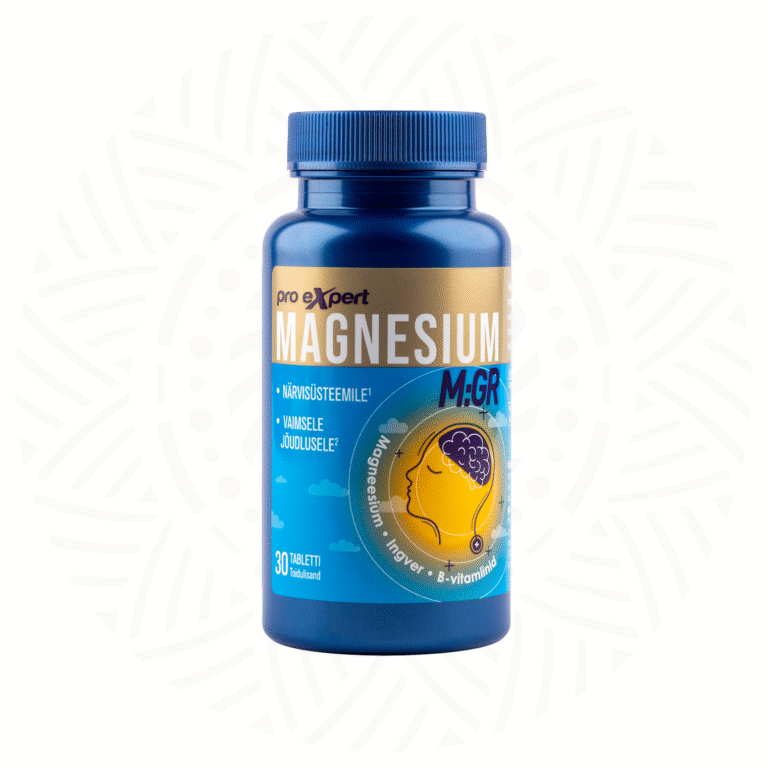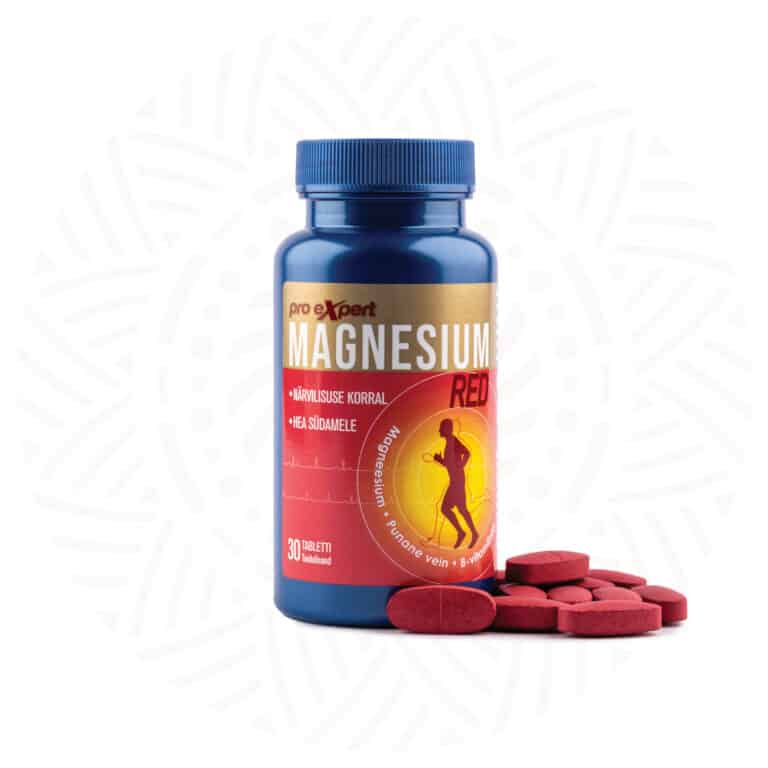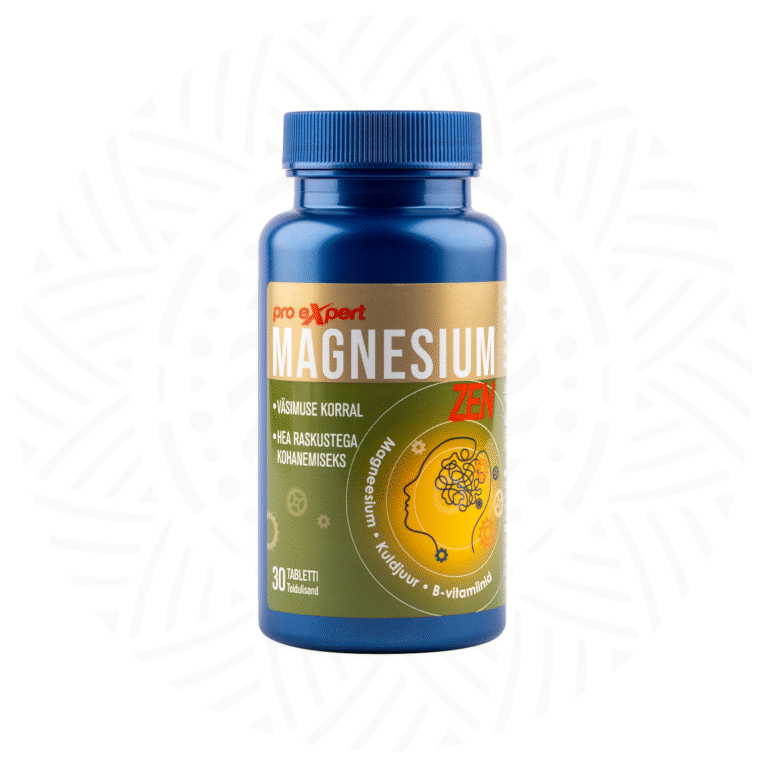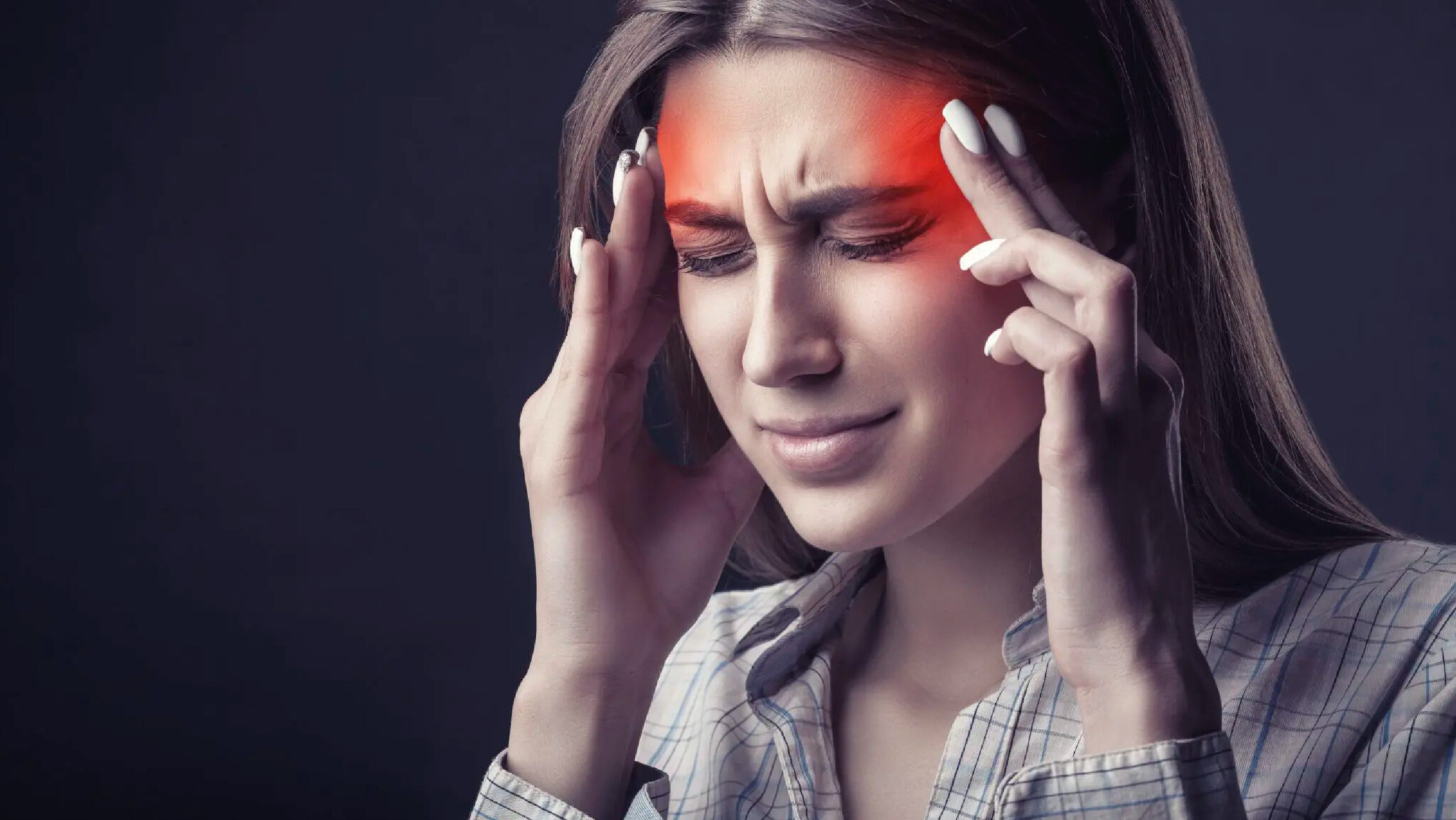Magnesium is an essential mineral whose deficiency leads to many unpleasant symptoms and chronic diseases. Excessive intake can also cause magnesium overdose. Below, you will learn how to take magnesium to get the maximum benefit for your health.
What are the symptoms of magnesium deficiency?
- Muscle cramps
- Fatigue
- Headache
- Irritability
- Insomnia
- Heart arrhythmias
- Depression
- Nausea and vomiting
What is the daily magnesium requirement?
The magnesium requirement varies for each person, but it mainly depends on physical activity, age, and body weight. The daily magnesium requirement for an adult is 300 – 350 mg. If the requirement is not met, a deficiency will develop.
It is worth noting that the optimal single dose of magnesium is 100 – 200 mg. Therefore, it is recommended to take magnesium tablets in smaller doses, and if necessary, several times a day.
The European Food Safety Authority has confirmed the safe upper limit for magnesium intake:
- For children under 1 year: 80 mg
- For 1 – 3 year olds: 160 mg
- For 3 – 10 year olds: 230 mg
- For women: 300 mg
- For men: 350 mg
How long should you take magnesium tablets?
Regular magnesium tablet intake is the easiest and most effective method to prevent magnesium deficiency. It takes 3 – 6 months to fully restore magnesium stores. Therefore, for example, in case of leg cramps, magnesium tablets should be taken even after the symptoms have disappeared.
Should magnesium tablets be taken with food or without?
In general, magnesium can be taken either with food or without, depending on what time works best. Taking magnesium tablets with food is suitable for those with sensitive stomachs. For digestive issues and sensitive stomachs, the best magnesium is magnesium glycinate.
Foods that improve magnesium absorption:
- Healthy fats: monounsaturated and polyunsaturated fats such as avocado, nuts, seeds, olive oil, and rapeseed oil.
- High-fiber foods: whole grains, vegetables, and fruits.
- Foods rich in vitamin D: fatty fish, eggs, and vitamin D-enriched products.
Foods that reduce magnesium absorption:
- Phytates and oxalates: some foods contain phytates and oxalates, which can reduce magnesium absorption. For example, spinach and rhubarb contain oxalates.
- Too much fiber: while fiber helps improve magnesium absorption, an excessive amount of fiber may inhibit magnesium absorption.
- Alcohol and caffeine: excessive alcohol and caffeine consumption leads to greater magnesium excretion from the body.
Tips for improving magnesium tablet absorption:
- Eat foods rich in healthy fats, fiber, and vitamin D
- Avoid foods containing phytates and oxalates.
- Don’t consume too much fiber.
- Reduce alcohol and caffeine intake.
When is the best time to take magnesium tablets?
If you simply want to combat magnesium deficiency or improve overall well-being, it doesn’t actually matter whether you take magnesium supplements in the morning, afternoon, or evening. What’s important is daily consistency.
If you’re taking magnesium tablets for a specific health issue (e.g., insomnia, anxiety, headaches, or recovery after exercise), it’s recommended to time your magnesium intake for improved effectiveness.
How to take magnesium tablets for insomnia?
Magnesium is an essential mineral involved in many bodily functions, including muscle relaxation and calming the nervous system.
Magnesium has a relaxing effect on the body and mind, contributing to peaceful sleep. If you need restorative sleep, take magnesium tablets about an hour before bedtime. Magnesium effectively reduces muscle tension, relieves stress, and has a calming effect on the nervous system. Therefore, magnesium helps in achieving better sleep.
How to take magnesium tablets for anxiety?
Magnesium plays a role in regulating the nervous system and brain and helps effectively combat anxiety. If you’re taking magnesium tablets for daily anxiety relief, take it in the morning. This way, you’ll experience the effective benefits of magnesium throughout the day.
How to take magnesium tablets if you’re physically active?
If your muscles are active and your body is sweating, it requires more magnesium than usual. Physical exertion promotes the loss of fluids and magnesium, which leads to muscle tension and cramps. Therefore, it’s especially important to restore magnesium stores after physical activity and exercise.
If you’re physically active, take magnesium tablets with plenty of water 30 minutes before or right after exercise. Magnesium tablets help you recover faster, relax tense muscles, and alleviate muscle soreness caused by excessive lactic acid build-up. Magnesium helps maintain athletic performance!
What promotes magnesium absorption?
Although magnesium is absorbed independently, some vitamins and minerals help improve its absorption. Magnesium absorption is enhanced by vitamin B6, vitamin C, vitamin D, and the minerals calcium and sodium.
Take magnesium tablets with B vitamins!
You’ve probably noticed that many magnesium supplements contain B vitamins. To fully absorb magnesium, it needs to be taken with vitamin B6 (magnesium B6 vitamin), as this helps magnesium enter the cells more effectively.
It’s important to note that magnesium with B vitamins does not improve the absorption of magnesium with low bioavailability (magnesium oxide). Magnesium citrate and magnesium glycinate with B6 vitamins are the most effective magnesium supplements.
Why shouldn’t magnesium and calcium be taken together?
While calcium helps muscles contract, magnesium is required for muscle relaxation. Although both magnesium and calcium are essential for muscle function, taking them together doesn’t provide any benefit. Why?
Calcium and magnesium are minerals that are absorbed through the same receptor in the body. Since magnesium is more active, calcium cannot be absorbed simultaneously. There should be a gap of at least 2-3 hours between taking calcium and magnesium supplements.
Don’t take magnesium tablets with certain medications
Do not take magnesium with medications such as diuretics, antibiotics, or antacids. There should be at least a 2-hour gap between taking medications and magnesium tablets, as this helps ensure optimal magnesium absorption.
Why magnesium flakes are not the best choice
People often use magnesium foot baths to relieve leg cramps. For magnesium to be effective, it needs to reach the bloodstream, not just the outer layers of the skin. Magnesium flakes in foot baths do not absorb into the systemic circulation and do not raise magnesium levels in the body.
For leg cramps, it’s the warm water that relaxes tense muscles, not the magnesium flakes in the bath.
What are the best forms of magnesium?
There are many different forms of magnesium on pharmacy shelves, some of which are cheaper but may cause troublesome side effects – mainly diarrhea. Others are more expensive but offer higher bioavailability. It’s important to know that the lower the bioavailability, the greater the risk of side effects.
If you’re looking for high-quality magnesium, the best magnesium tablets are magnesium citrate and magnesium glycinate. Below is a comparison of the three most common forms of magnesium found on pharmacy shelves.
Magnesium oxide:
- It is an inorganic, insoluble magnesium salt with low bioavailability.
- It is the least absorbed form, with only 4% being absorbed by the body.
- The risk of side effects is high – digestive issues, mainly diarrhea.
Magnesium citrate:
- It is also a trace element in the body, which makes it well tolerated and absorbable.
- It is an organic compound (natural) and is absorbed well.
- It quickly calms the central nervous system.
- It effectively alleviates both physical and mental unrest.
Magnesium glycinate:
- It is an organic compound bound to amino acids, which also reaches the brain, promoting a relaxing effect and effectively helping to reduce headache episodes.
- It is one of the most absorbable forms and is well-suited for those with digestive issues (diarrhea).
- It is easily absorbed and is the best choice for alleviating magnesium deficiency.
- Due to its calming effect, it effectively helps combat symptoms of anxiety.
Use magnesium wisely and stay healthy!







